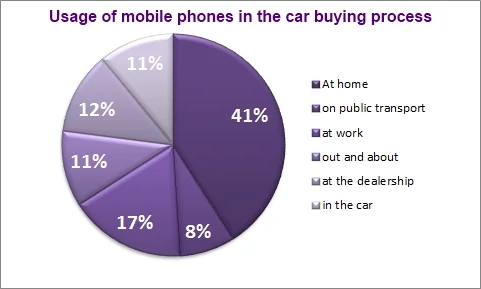I think a lot is made these days of ‘mobile’ and ‘desktop’. We create different departments, different budget lines, different product experiences and I’ve seen the emergence of the ‘mobile specialist’ in recent years. We spend a lot of time as marketers and product developers obsessing over platforms and how we can utilize the nuances of each to create complimentary experiences.
Example of presumptuous service tailoring
Here’s a common example: When I search for a movie title at home, I probably want to read message boards, view trailers, write a review, do something involved and deep. When I search from a bar, it’s because I want to know which theatres are near me and when the next showing is. a site like IMDb offers me a pretty unusable message board experience via their mobile app. Pretty fair assumption I guess. The problem is that the assumption is made on the basis of device. What if I’m at home and I pick up my phone instead of my laptop. Are my tasks or needs different? Then why should the experience presume that I’m out of my home just because I’m on a phone?
Assuming needs based on device is wrong almost half the time
I’ve been conducting some primary research lately into Canadian use of mobile devices in the car buying process. Something that really caught my eye was how much usage of mobile occurs in the home. Note I’m not including tablets which you’d expect to be used at home, I’m talking specifically phones here. I’d be willing to bet that the stat is about the same for most buying journeys and tasks, not just cars.
A lot of product strategists are trying to develop their apps and mobile sites to make use of the nuances and benefits of portability which makes perfect sense on the surface, like in my movie example. Phones are portable, so they offer lots of opportunity to enhance user experience using the phone’s capability. Things like mapping functionality and proximity alerts. Meanwhile the desktop is thought of as more fixed, that location is less relevant, and so these sites are being developed to conduct different types of tasks.
But as we further evolve platforms in these distinct ways I sometimes feel an assumption is being made. The assumption that a mobile site or app is always used out of home, and a desktop site is always used in the home or office. My research above confirms this assumption is dangerous.
Just as 41% of phone usage is in the home, how much use of desktop occurs out of home? That I don’t know, but how often do we see people using their laptop in Starbucks and aren’t these individuals just as likely to benefit from locational services as someone using their mobile phone in the same setting? Why should brands assume user A, B and C in the image below all have different needs just because they are using different platforms?
Are the needs of user A (tablet) any different from user B (phone) or user C (laptop)?
Let user need dictate functionality, not user platform
This is leading me to increasingly class users as ‘fixed location’ (home or office) and ‘temporary location’ (on the bus, the street, in the bar), regardless of what device they are using. Because I believe that need or goal is more likely dictated by this state rather than device. Maybe thinking of users in these scenarios is more appropriate than assuming that a mobile user is always on the move and a desktop user is always at home. Certainly as devices proliferate a more advanced level of thinking and accessibility options is required. I know that functionality is heavily influenced by device, but we as marketers shouldn’t let devices dictate how well we deliver on a user’s needs and goals, which are dictated by situation, NOT device chosen


